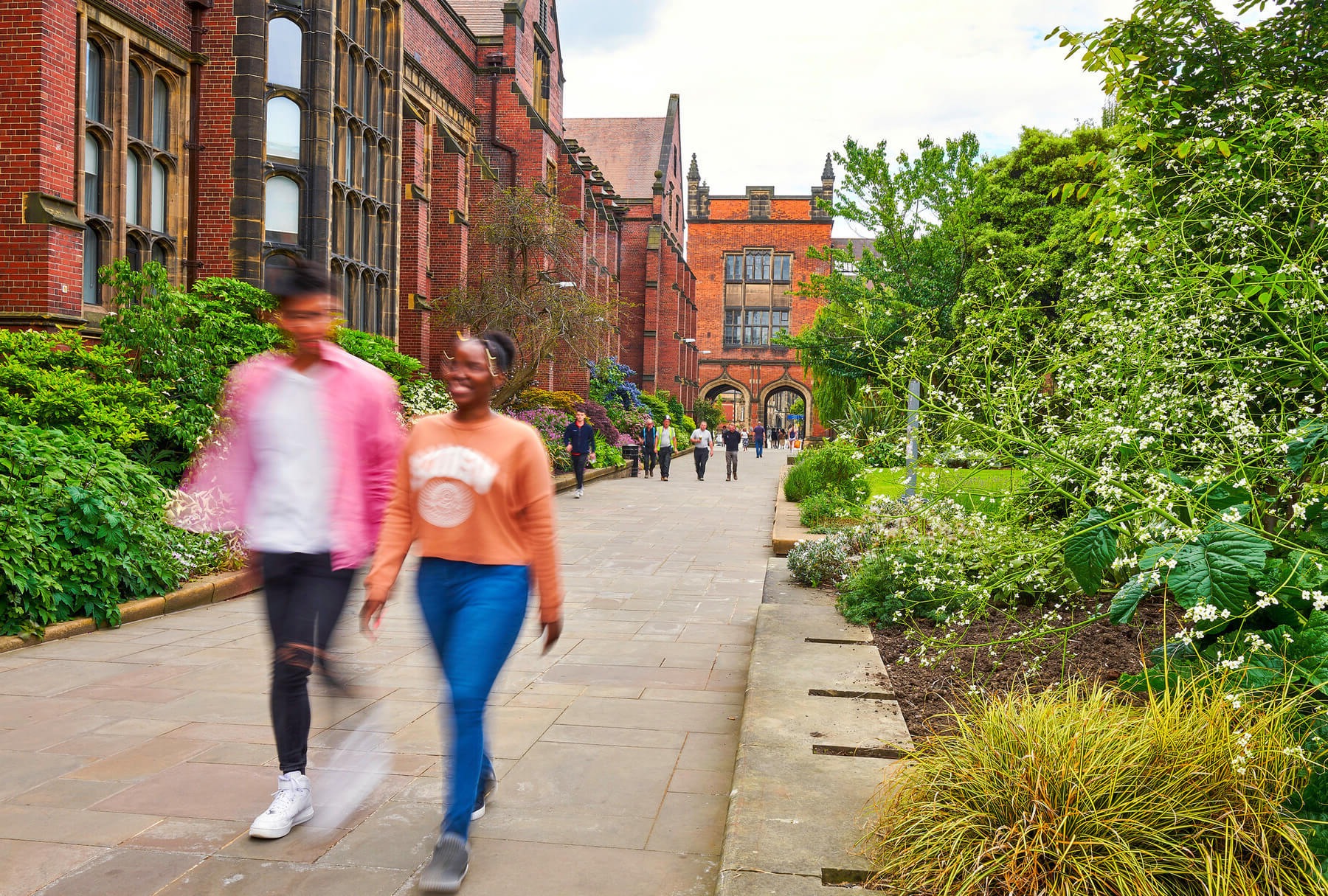Student Minds Mental Health Charter: Live Workstream
Yvonne Chase, Head of Student Life, and Kate Aitchison, Head of Student Health & Wellbeing share some of the work undertaken as part of our University’s commitment to the Student Minds Mental Health Charter and look at how we all have a part to play in creating a positive environment that benefits everyone’s wellbeing.
13 June 2025
You may already be aware of the Student Minds Mental Health Charter and our University’s commitment to it. Following previous updates, we focus here on the activity of the Live Workstream and how we can all make our campus and community safe, welcoming and conducive to positive mental wellbeing.
Who are the Live Workstream?
As with other workstreams, it has been important to have wide ranging input for this area. Since this area of the charter focuses on both our physical environment and sense of community, it was vital to have representatives from (amongst others) estates, accommodation, student life, chaplaincy, sport and NUSU.
The Live section of the charter encourages Universities to focus on four broad areas and is designed to ensure that students and colleagues share a sense of belonging within a safe and accessible campus. The four areas are:
Proactive Interventions and a Mentally Healthy Environment: Encouraging healthy behaviours, building a positive culture and a community which places importance on mental health.
Residential Accommodation: Working to ensure student accommodation is safe, inclusive and helps students build a feeling of belonging. Working with partners to ensure that students struggling with their mental health are recognised and supported appropriately.
Social Integration & Belonging: Taking action to ensure a safe, diverse and cohesive community where isolation is tackled and prevented.
Physical Environment: Embedding accessibility and wellbeing in the maintenance and any new development of the campus, including ensuring adequate access to social spaces and to nature.
Looking Forward
As we move towards the end of another academic year and set our sights on a new intake of students joining us for academic year 2025/26 we wanted to highlight some the valuable work of our ResLife and accommodation teams who do so much to support the belonging and integration of students new to the city and who are key to this workstream. One example, new in 2024/25, was the Passport to Independent Living event; an initiative held at the start of the academic year to help new students navigate university life and develop essential independent living skills. The event introduces students to a wide range of campus services and practical knowledge—from budgeting, wellbeing, security and safety to accessing support resources—all in a lively, social atmosphere with entertainment, music, refreshments and prizes to be won. This event serves to boost the confidence of new students, help them feel connected to their new community, and prepares them for independent living, ensuring they can thrive confidently throughout their university journey.
Making a Difference
It is clear how the activities of ResLife and accommodation link with this area of work but the charter champions a whole institution approach, meaning that everyone, whatever our role at the University, has a part to play. This is especially true for the live area as we can all impact our environment and community. Whether this be encouraging colleagues and students to ensure they’re taking healthy breaks, being an active bystander or taking part in or organising social events- we can make our campus an even more welcoming place to be.
How to get involved?
Complete MH & Wellbeing Awareness Training and Suicide Prevention Training, social yourself to the Student Mind Principles of Good Practice (PoGP), and share with us how your work already meets these PoGP, or any ideas as to how we can further meet them.
If you'd like to get involved or share your thoughts around the Live workstream, please reach out to Kate Aitchison (kate.aitchison@ncl.ac.uk) or Yvonne Chase (Yvonne.chase@ncl.a
